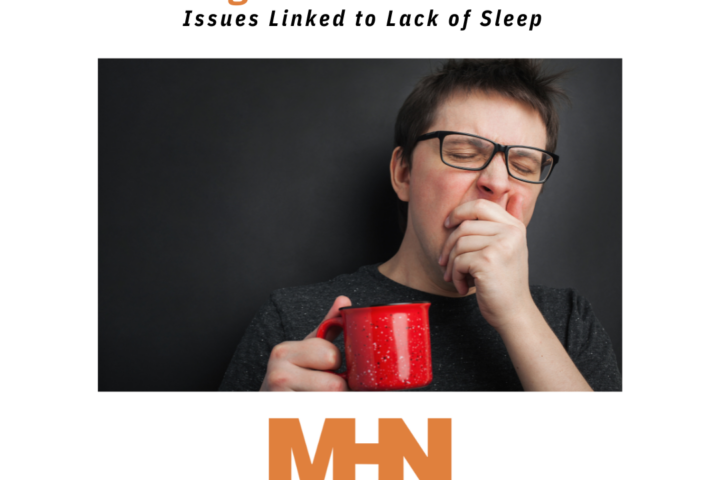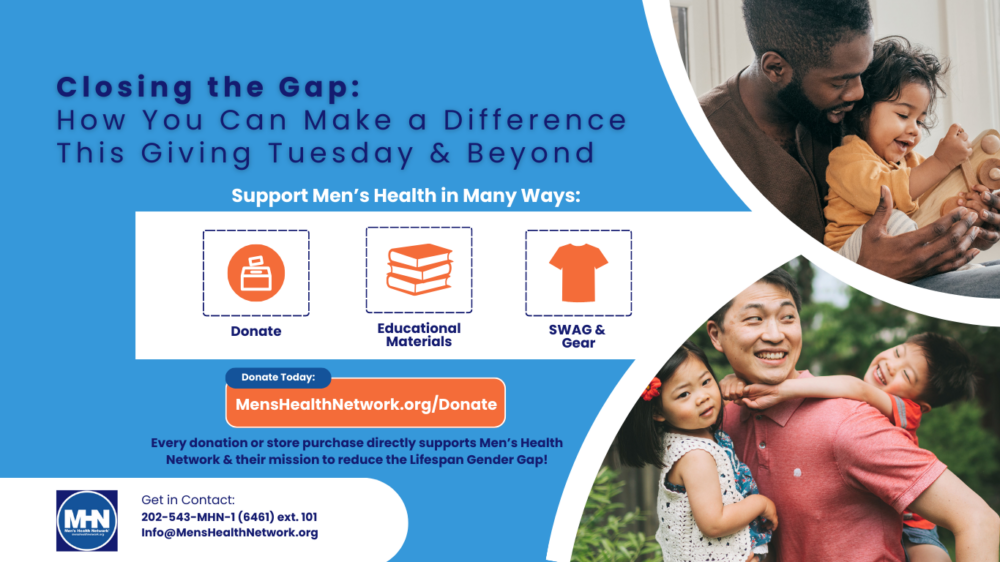Crossing the finish line on Drive for Men’s Health
Dr. Jamin Brahmbhatt and Dr. Sijo Parekattil, Co-Directors of The PUR Clinic (Personalized Urology & Robotics Clinic at South Lake Hospital, in affiliation with Orlando Health) contributed this post to Talking About Men’s Health
Men’s Health Month is a time to encourage men to get regular health screenings and promote early detection. From physical health to mental health, the awareness month is dedicated to speaking up about all the health implications related to men.
We know talking about men’s health is perceived as difficult or embarrassing, but when men are silent, some of the most important issues can be left ignored for too long.
In an effort to get the conversation going, we’re bringing up three health issues that men often don’t talk about – but should:
Male infertility is real.
Problems with infertility are often associated with females, but the truth is that both men and women are equally responsible for this condition. Research shows that 35 to 40 percent of the problems due to infertility are caused by male conditions, with females contributing the same amount.
The top contributors to male infertility, or the inability to get pregnant after one year of unprotected intercourse, are low sperm count, abnormal sperm movement, abnormal shape or size of sperm and problems with semen. A variety of factors can affect these causes, including lifestyle, genetics and physiology, but the good news is there are simple changes men can make in their daily lives to decrease their chances.
Smoking is a big contributor linked to low sperm count and slow sperm movement, as well as drinking, which can prevent sperm from forming normally and prevent pregnancy. Being overweight or underweight can have an effect as well. Too much weight can cause hormonal problems, while not enough can cause decreased sperm count and functionality. Stress is also a contributor, interfering with the hormones necessary to produce sperm. Over a prolonged period of time, stress can actually effect overall sperm count.
If you’re having trouble getting pregnant, it’s important to consider all the possibilities and not put the blame on one person or cause. It’s not worth avoiding the subject just because it might be difficult to talk about.
Breast cancer affects men, too.
Though breast cancer is considered a woman’s disease, it can occur in men, as well. When breast cancer is detected at an early stage, it can usually be cured. The problem is, most men ignore the more obvious signs of the disease because they don’t know they are at risk, so it often goes undiagnosed until it’s more advanced.
While breast cancer is 100 times less common in men than it is in women, the American Cancer Society estimated that 440 men will die of the disease in 2015.
Here’s how it can happen. Breast tissue contains milk-producing glands, fat and ducts that carry milk to the nipples. Everyone is born with breast tissue, and while it develops in women during puberty, men still have a small amount, which puts them at risk for the disease.
In fact, there are three main types of breast cancer that can develop in men, including cancer that begins in the milk ducts (ductal carcinoma), which is the most common type, cancer that starts in the milk-producing glands (lobular carcinoma), and cancer that spreads to the nipple.
A man’s risk of breast cancer increases with age, occurring mostly between men ages 68 to 71, and factors such as exposure to estrogen-related drugs, family history, obesity and radiation exposure can also play a role. If you start to experience any of the telltale signs of breast cancer, such as a lump, discharge from the nipple or changes to the skin covering the breast, such as dimpling, redness or scaling, don’t ignore them, and don’t automatically rule out your risk for the disease. See your doctor right away to talk about these symptoms.
Testicular pain could be more serious than you think.
Testicular pain can take many forms, with even the most minor injuries causing discomfort. The cause can’t always be identified, and it can sometimes arise from problems that start in the groin, abdomen or elsewhere.
Because a range of factors can cause testicular pain, it’s important to know when pain could mean something more serious. The cause and source of the pain is sometimes difficult to identify and can be caused by a variety of factors like nerve damage (usually as a result of diabetes), kidney stones, hernias, urinary tract infections, testicular cancer, or inflammation or fluid build-up. It’s key to listen to your body. When you’re experiencing symptoms like sudden or severe pain, or pain in the testicles accompanied by nausea, fever, chills or blood in your urine, you know it’s time to seek help. Sudden and severe pain, for example, could be a sign of testicular torsion – a twisted testicle that can quickly lose blood supply that requires immediate medical attention to prevent the loss of a testicle.
In addition, mild pain that lasts more than a few days or a lump/swelling around the testicle are issues that call for medical assistance, as well. For more mild pain, over-the-counter medications like aspirin or ibuprofen can help. Supporting the scrotum with a towel while lying down is also a way of reducing discomfort.
We’re crossing the finish line on our Drive for Men’s Health initiative, a journey that has taken us over 6,000 miles, but we know our efforts to raise awareness don’t stop here. We encourage men and women to keep the conversation going year-round. It’s time to be a man – and take a stand for your health.




This is a great post. It looks at problems most may think only affect women and shows how they affect men and shows ways to improve these conditions.
Excellent post that really provides clear explanations of these health risks, especially considering that these three are the ones that men generally avoid talking about at all costs. While likely the result of fear more than anything else, fear in this case can be even more deadly than these conditions. Ignorance doesn’t give men the peace they seek. Many of these conditions are very treatable if they are willing to become more informed and recognize when something is wrong and seek treatment.